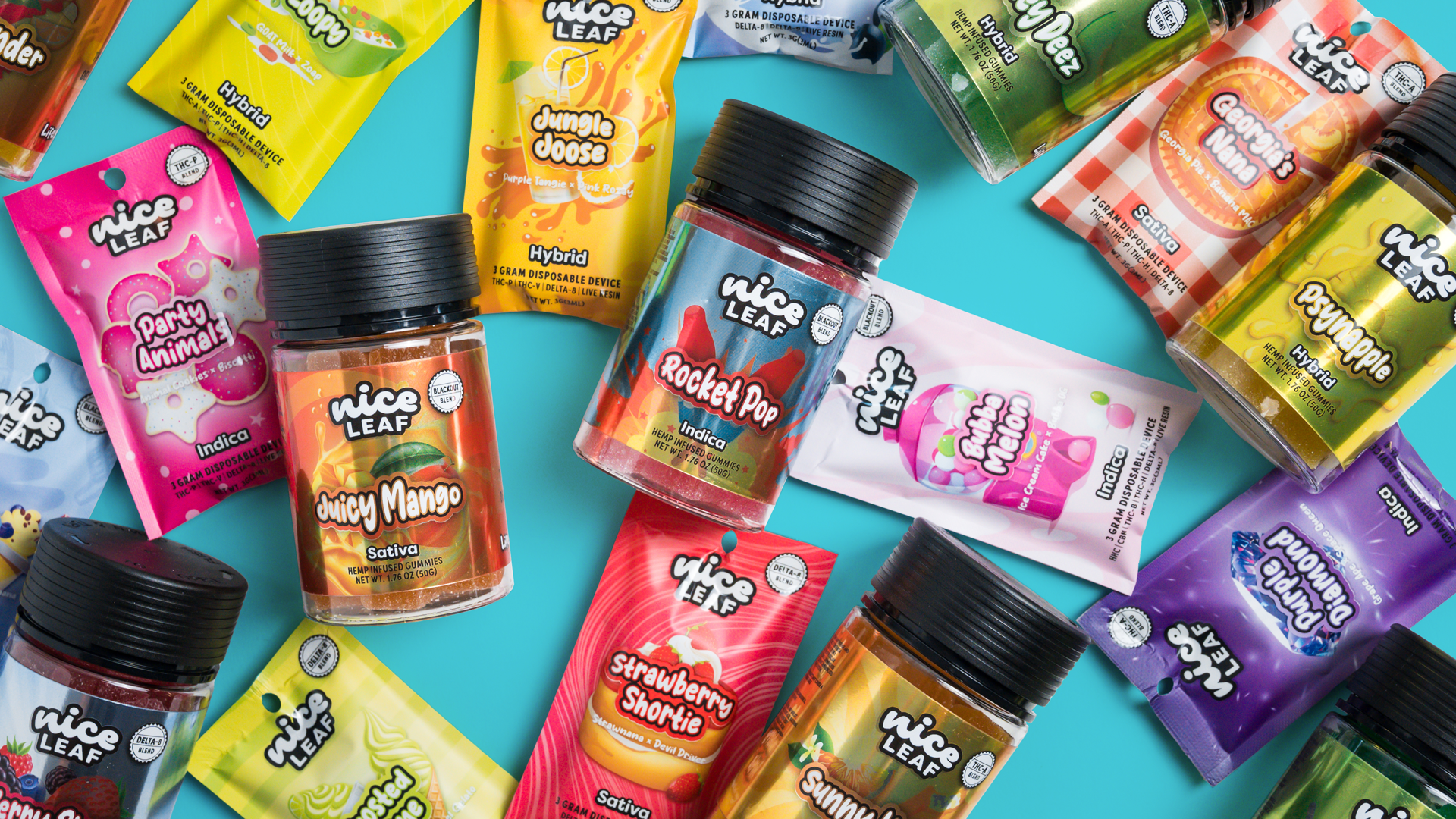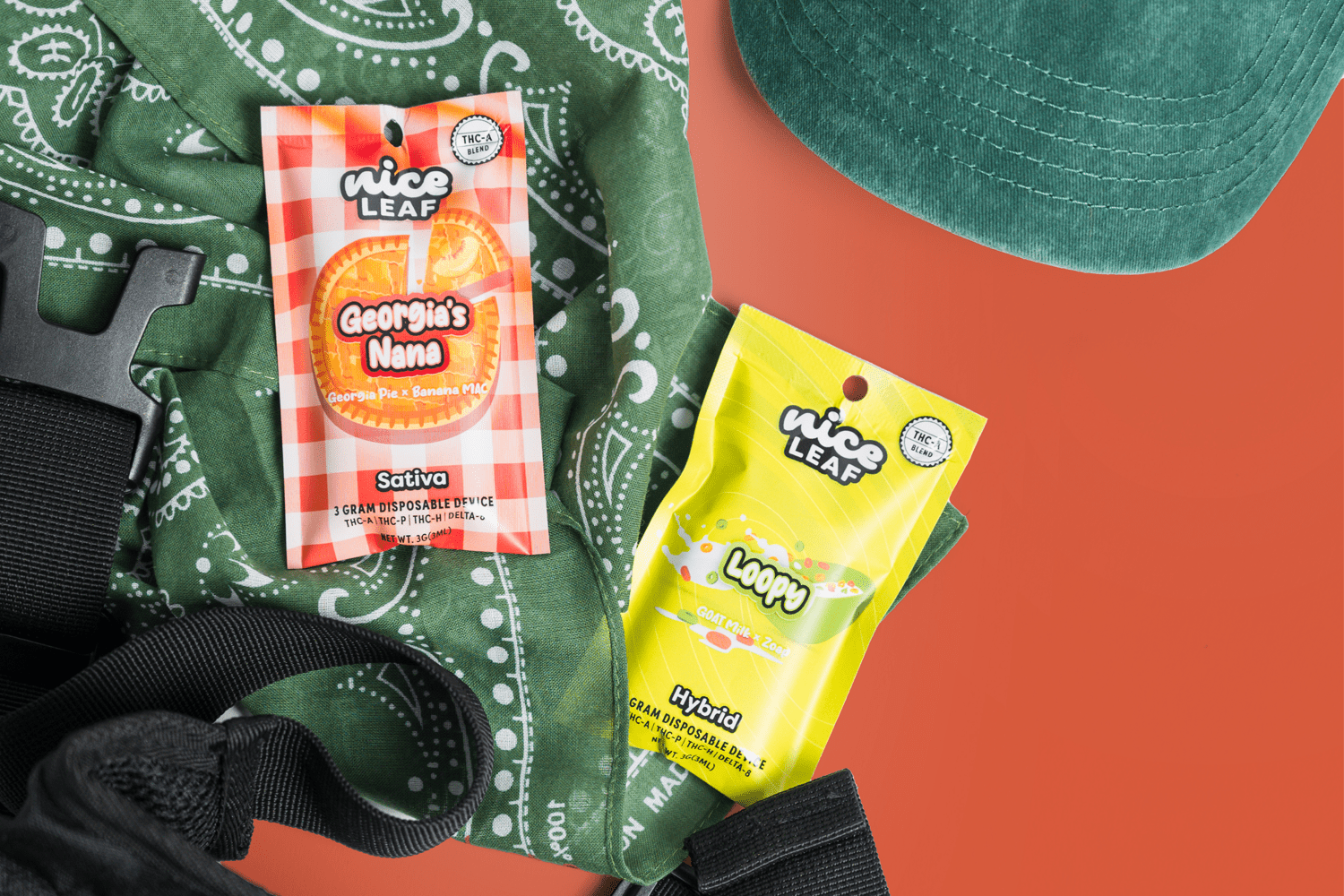As the cannabis industry continues to evolve, so does the interest in the variety of cannabinoids in the plant. THCa is an excellent example. A type of THC, THCa has been continuously gaining attention in recent years. What is THCa, though, and how does it differ from traditional THC?
What are the benefits of consuming it, and what are the best ways to consume it? Let’s take a deep dive into the cannabinoid to find out everything there is to know about THCa.
WHAT IS THCa?
THCa, AKA tetrahydrocannabinolic acid, is a naturally occurring cannabinoid found in raw cannabis. It is the precursor to THC, the well-known psychoactive compound in cannabis. Unlike THC, thought, THCa is non-psychoactive in its raw form. It doesn’t produce the “high” associated with cannabis consumption.
If cannabis gets exposed to heat, the THCa undergoes a reaction that transforms it into THC. This chemical reaction is called decarboxylation. It happens through processes like smoking, vaping, or cooking.
It’s this conversion into delta-9 THC that activates THCa’s psychoactivity. Because of this, consuming raw cannabis, such as in juices or salads, won’t result in intoxication. Consumers can then experience the potential benefits of THCa without the high.

WHY 'HEMP-DERIVED' THCa?
The term “hemp-derived” highlights the source of the THCa compound. Hemp is a variety of cannabis known for being rich in cannabinoids, including THCa, but with naturally low levels of THC. This distinction impacts the legality and accessibility of THCa products.
Some states only permit hemp-derived cannabinoids under the 2018 Farm Bill. Using “hemp-derived” specifies that brands source their THCa from hemp rather than high-THC cannabis. Those higher-THC strains are illegal in certain states, so the differentiation is important.
A hemp-derived label ensures that THCa products comply with federal and state regulations. It also makes them accessible to a wider audience without the legal complexities associated with higher THC content.
IS THCa INTOXICATING/PSYCHOACTIVE?

THCa is not intoxicating in its natural state. It’s a precursor to delta-9 THC, which is what provides the familiar cannabis “high.” THCa itself won’t make you feel high – but why?
The “a” in THCa is because of the presence of an acid group in its chemical makeup. Essentially, that little “a” alters how it interacts with our endocannabinoid system. It prevents THCa from interacting with the brain and body the way that THC does.
WHAT'S THE PURPOSE OF THCa IF IT'S NON-PSYCHOACTIVE?
THCa is gaining popularity for several reasons beyond its ability to convert into THC. In its raw form, THCa is being studied for a range of potential therapeutic benefits. That includes anti-inflammatory, neuroprotective, and anti-nausea effects, among others.
These properties make THCa an attractive option for wellness enthusiasts. Likewise, it’s appealing to those interested in exploring the medicinal aspects of cannabis. It makes it possible for consumers to add cannabis to their daily routines without impairment.
HOW DO THCa EDIBLES LIKE THCa GUMMIES WORK, THEN?
THCa edibles, such as gummies, offer a convenient way to enjoy the benefits of THCa without the need for smoking or vaping. These products often contain THCa diamonds, a concentrated form of THCa that resembles golden crystals. Essentially, these diamonds are already primed for conversion into THC.
THCa gummies, for example, contain pre-decarboxylated THCa. Consumers can experience its intended effects without any extra processing. Specifically, edibles like gummies are ideal for their convenience and consistent dosages.
WHAT MAKES THCa DIFFERENT FROM OTHER CANNABINOIDS?
THCa is unique among cannabinoids because it’s also an acidic precursor. Because of that, it’s found in raw and live cannabis plants. In its raw, natural state, THCa doesn’t produce a high (so raw cannabis won’t either). Like this, consumers can still reap the other benefits that cannabis has to offer, even aside from its psychoactivity.
THCa VS. DELTA-9 THC
THCa and Delta-9 THC are closely related but have some key differences. Chemically, THCa is the precursor to delta-9 THC, with an extra carboxylic acid group in its structure. This group prevents THCa from being psychoactive until it’s converted into THC.
While delta-9 THC is famous for its psychoactive effects, such as euphoria and relaxation, THCa doesn’t produce these effects (until it becomes THC). Both cannabinoids have therapeutic potential, but THCa might offer enhanced benefits. It could provide stronger anti-inflammatory and neuroprotective effects. In some ways, THCa might be more effective in certain therapeutic applications.
THCa VS. DELTA-8 THC
THCa and delta-8 THC are distinct cannabinoids with different properties and effects. Delta-8 is psychoactive, but it is generally less potent than Delta-9. Consumers often report that it provides a milder high. THCa, on the other hand, is non-psychoactive until heated and converted into THC.
The two cannabinoids also differ in their chemical composition, which accounts for their varying effects. THCa is the precursor to THC, while delta-8 is an isomer of delta-9 (same formula, different arrangement of atoms). This difference even influences their legal status. Presently, delta-8 occupies a legal gray area due to its intoxicating properties. Meanwhile, THCa is often legal if derived from hemp.
THCa VS. CBD
THCa and CBD are both non-intoxicating cannabinoids, but they have distinct differences. THCa remains non-intoxicating in its raw form and only becomes psychoactive when heated. Conversely, CBD is always non-psychoactive. It can’t produce a high, regardless of exposure to heat.
Both cannabinoids offer potential therapeutic benefits, but their effects differ.
THCa might have anti-inflammatory and pain-relieving effects. Similarly, CBD may help with inflammation and other types of pain, as well as anxiety.
THCa might provide immediate effects once converted to THC, offering quick relief for certain symptoms. CBD may need consistent use over time to achieve similar noticeable results.
Finally, on the legal front, hemp-derived CBD products are generally federally legal. THCa’s legality varies based on regional regulations.
WHAT DOES THCa FEEL LIKE?
In its raw form, THCa doesn’t produce any psychoactive effects, meaning it won’t make you feel high. Instead, there may be more subtle therapeutic benefits. Examples might include reduced inflammation or relief from nausea without feeling intoxicated.
If heated, it converts into THC, transforming into its psychoactive cousin. Once converted, its effects mirror those of delta-9 THC’s. It provides that familiar psychoactive experience of cannabis. Many consumers report feeling euphoria, relaxation, and an altered perception of time.
THCa edibles that have been converted may provide a similar experience to traditional edibles. The effects often take longer to onset but last longer than from smoking or vaping. However, the intensity and effects duration depend on the serving size and individual tolerance levels.
Overall, THCa offers a versatile experience. It could be consumed raw for non-intoxicating therapeutic benefits or converted into THC for a traditional psychoactive experience. Its dual nature makes THCa appealing to a wide range of consumers.

THE THERAPEUTIC POTENTIAL OF THCa
Unlike its psychoactive counterpart, THCa offers effects for wellness without intoxication. It’s important to note that research into THCa is still emerging. However, early findings suggest several promising applications for health and wellness.
DEEPER RELAXATION AND PAIN REDUCTION
THCa may promote a deep sense of relaxation whether it’s decarboxylated or not. Consumers report a sense of calm and tranquility after consuming THCa products. It’s often cited as an excellent option for those who want to unwind after a long day. The profound relaxation can also benefit consumers dealing with stress or anxiety. THCa may provide a natural way to ease tension and elevate well-being.
One of the most studied potential benefits of THCa is its role in pain reduction. THCa’s anti-inflammatory properties may help ease pain associated with various conditions. These might include arthritis and chronic pain disorders, among other types of pain. THCa may contribute to someone’s overall pain management. For others, it could improve quality of life, especially those suffering from persistent pain.
LESS NAUSEA
Early research is also exploring THCa’s potential anti-nausea effects. Preliminary studies suggest THCa may help reduce nausea and vomiting. It could be a potential solution for many, from patients undergoing chemotherapy to consumers with conditions that cause nausea. It may also improve appetite, further aiding in quality of life.
OTHER INTOXICATING EFFECTS
While THCa itself is non-intoxicating, its conversion into THC can lead to intoxicating effects. Once converted, THCa can produce the familiar psychoactive effects of THC. Be prepared for possible euphoria, altered perception, and increased sensory awareness. Versatile, it allows THCa to be used both therapeutically and recreationally. It just depends on the consumer’s needs and preferences.
DOES THCa HAVE SIDE EFFECTS?
THCa is generally considered safe and well-tolerated, especially in its non-psychoactive form. However, as with any substance, there may be potential side effects to consider.
In its raw form, some users may experience mild gastrointestinal discomfort or changes in appetite. These effects are generally rare and minor.

Once converted, there may be other mild side effects. These include euphoria, which is often sought after. However, the feeling can become overwhelming for some users.
Other mild side effects include anxiety or paranoia, which is common when consuming THC, especially in large amounts. Dry mouth and eyes, dizziness or lightheadedness, and more individual sensitivities are other possible side effects.
Regardless, though, all side effects are typically mild and pass quickly.
SAFETY PRECAUTIONS
It’s important to start with a low dose of THCa to minimize the risk of side effects. This allows consumers to gauge their tolerance and adjust their consumption accordingly.
Use THCa responsibly and with awareness, just like any other cannabis product. By doing so, consumers can enjoy the benefits of THCa while minimizing any negative effects.
WHAT IS THE LEGAL STATUS OF THCa?
At this time, the laws surrounding THC as a controlled substance do not specify anything about THCa. As it’s a non-psychoactive compound, it’s generally passed over. Instead, the 2018 Farm Bill states that hemp plants must contain 0.3% delta-9 THC or less.

In short: THCa derived from hemp is generally considered legal under the 2018 Farm Bill. However, since THCa can convert into THC, some states have imposed additional restrictions or bans on its sale/use. Be aware of the specific laws in your state regarding THCa.






Share:
A Deep Dive into THCp: Effects, Legality & More
What is the Blackout Blend and is it Really That Strong?